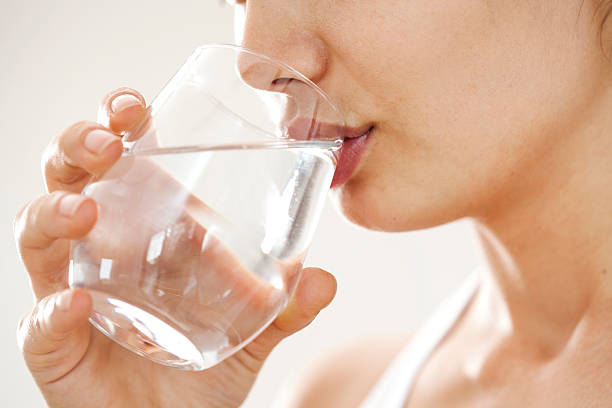Staying hydrated is critical for overall health, but there are numerous fallacies about how much water we should drink, what constitutes hydration, and the best techniques to keep our bodies functioning properly. We will debunk common hydration fallacies and reveal the scientific realities behind them.
MUST; 7 Healthy Morning Routines to Start Your Day Right
Myth #1: You Must Drink Eight Glasses of Water Per Day
Fact: There is no universal rule stating that everyone requires exactly 8 glasses (64 ounces) of water daily. Hydration requirements vary depending on body size, activity level, climate, and food. The National Academies of Sciences recommends approximately 3.7 litres (125 oz) for men and 2.7 litres (91 oz) for women, including fluids from food and beverages. Instead of counting glasses, pay attention to your body’s indications of thirst and urine color (light yellow is excellent).
Myth #2: If you feel thirsty, you’re already dehydrated
Fact: Thirst is a natural regulation process, not a sign of severe dehydration. While it is important to drink before you get dehydrated, mild thirst does not indicate that your body is in crisis mode. Chronic dehydration, or failing to consume enough fluids on a regular basis, can cause lethargy, headaches, and difficulty concentrating. What’s the best approach? Drink fluids throughout the day to stay hydrated, especially in hot weather or when exercising.
Myth #3: Coffee and tea dehydrate you
Fact: Caffeine has a minor diuretic effect, increasing urine production. However, moderate consumption of coffee, tea, or caffeinated beverages contributes to daily hydration. According to studies, drinking up to four cups (400mg caffeine) a day does not result in significant dehydration. However, high caffeine use mixed with insufficient water intake may result in dehydration. If you consume coffee, pair it with plenty of water-rich foods and liquids.
Myth #4: Clear urine indicates that you are fully hydrated
Fact: While pale yellow pee indicates enough hydration, entirely clear urine may indicate that you are overhydrated, which can cause the loss of critical electrolytes. On the other hand, dark yellow or amber urine may indicate dehydration. Instead of striving for completely clear urine, try for a faint lemonade color.
Myth #5: You cannot overhydrate
Fact: Drinking too much water can cause water intoxication (hyponatremia), a condition in which salt levels in the blood drop dangerously low. This can lead to nausea, confusion, and even life-threatening problems. Athletes and anyone who engage in strenuous exercise should drink fluids containing electrolytes to restore lost sodium, rather than drinking too much plain water.
Myth #6: Only water counts as hydration
Fact: A variety of foods and beverages help you stay hydrated. Fruits (watermelon, oranges, cucumbers), vegetables, soups, smoothies, and even milk all contain important fluids.
If you sweat heavily, electrolyte drinks or coconut water can help, but for most people, a well-balanced diet high in water is sufficient to keep you hydrated.
Myth #7: Drinking ice-cold water burns more calories
Fact: Although your body expends some energy to reheat cold water to body temperature, the calorie burn is modest. Cold water is nice and may encourage you to drink more, but it is not a magical weight-loss solution. For weight management, focus on total hydration and a well-balanced diet.
Myth #8: Sports drinks are the most effective way to stay hydrated.
Fact: Sports drinks like Gatorade and Powerade include electrolytes that can help replenish minerals lost during extreme activity, but they also contain extra sweets and needless calories for those who do not engage in extended, high-intensity workouts. Most people prefer water as their hydration source, and electrolytes can be obtained from natural foods such as bananas, yogurt, or coconut water.
In conclusion, staying hydrated does not have to be complicated; simply listen to your body and incorporate hydration into your daily routine. Drink to your thirst rather than pushing yourself to drink a certain number of glasses, and use urine color as a guide—pale yellow indicates adequate hydration. Include water-rich meals such as fruits, vegetables, and soups in your diet, and balance electrolytes if you’re sweating profusely or exercising vigorously. While liquids such as coffee, tea, and milk help to keep you hydrated, drinking too much water might dilute necessary sodium levels, so moderation is key. Maintaining a mindful approach allows you to stay well hydrated and promote overall well-being.


